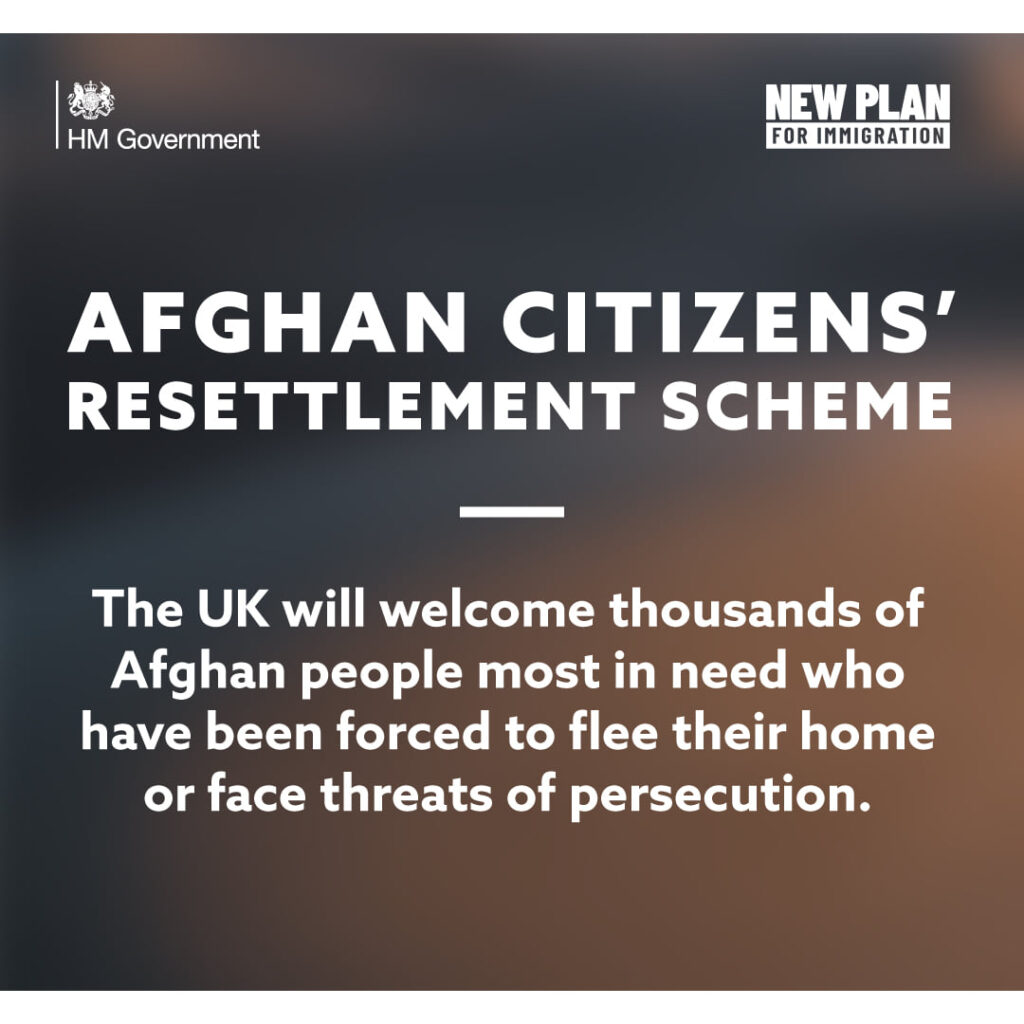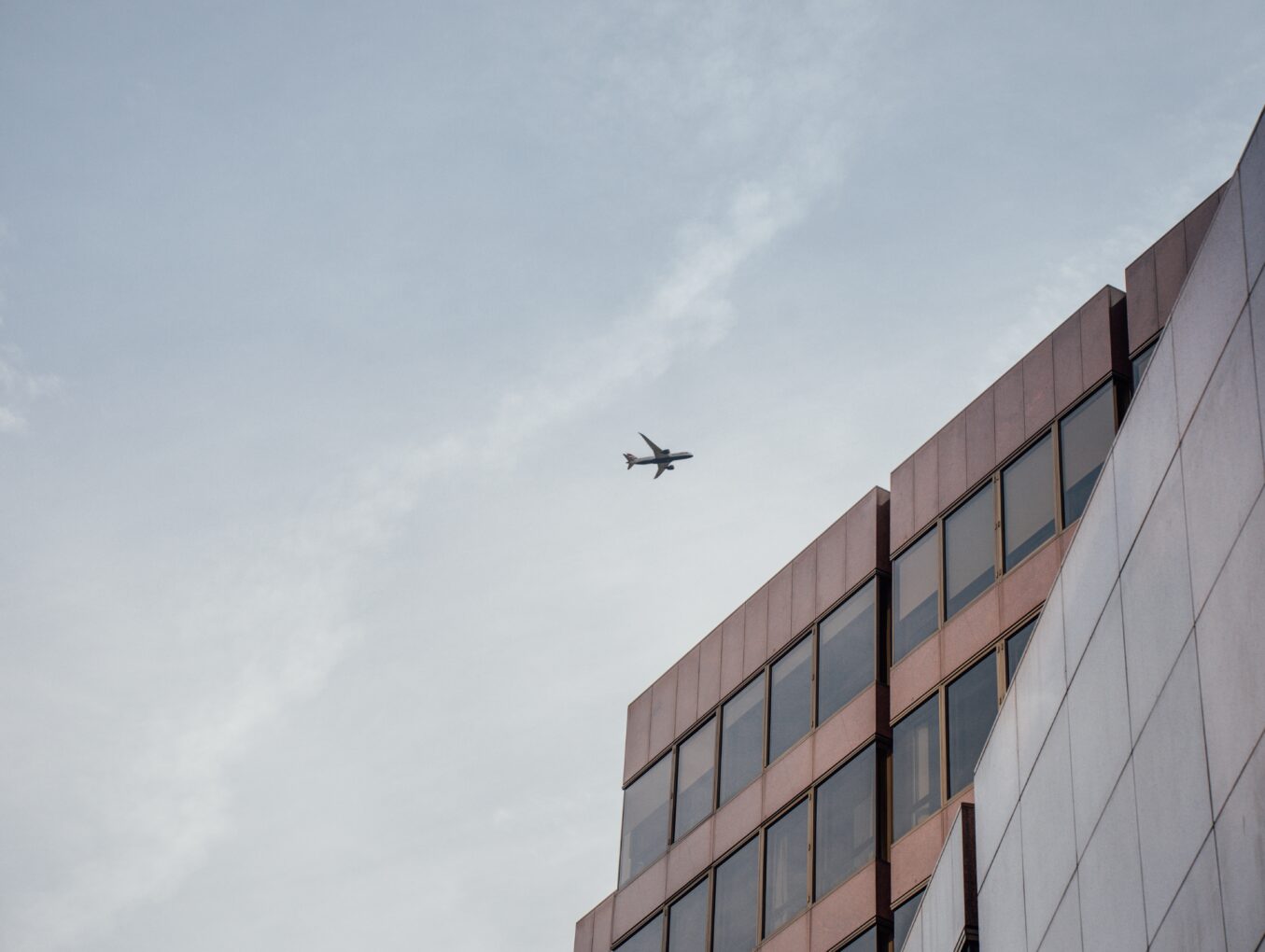In August 2021, as Afghanistan fell to the Taliban, the government launched Operation Warm Welcome, promising to make sure ‘Afghans who stood side by side with us in conflict, their families and those at highest risk who have been evacuated, are supported as they now rebuild their lives in the UK.’
Now, two years later, having failed to help almost half of the families find a settled home, the government has told over 8,000 Afghan families and individuals, half of whom are children, supported under the Afghan Relocations and Assistance Policy and the Afghan Citizens Resettlement Scheme, who remain living in hotel rooms, that they must leave by the end of August.
We’ve been supporting some of the families as they struggle to find a settled home and we’re calling on the government to ensure they don’t have to face further homelessness and unsettling moves.
Operation Warm Welcome
People the government committed to evacuating and supporting under the Afghan resettlement schemes were already British citizens or granted leave to remain in the UK under the schemes. They include people who served alongside British forces, interpreters, women’s rights activists and thousands of Afghans who risked their lives to protect and uphold the rule of law, democracy and human rights.
The government promised the schemes would help people rebuild their lives in the UK. When they were first airlifted to the UK, they were offered hotel accommodation, referred to as ‘bridging hotels’.
As recognised by our homelessness laws, hotel rooms aren’t suitable accommodation for families, and certainly not for more than a few weeks. So, the schemes provided funding to help people move on into settled privately rented home.
So, why are people who were supposed to be helped still homeless in hotels?

1. The Home Office scheme delayed and frustrated families’ attempts to move
The rules and bureaucracy of the resettlement schemes have further compounded problems for Afghan families in finding a home. For a year, people were advised that if they found their own accommodation, they wouldn’t receive the additional support offered by the scheme. Instead, until July 2022, they were advised to sit tight and wait for up to two offers of settled accommodation.
So, for a whole year, thousands of families, traumatised from fleeing Kabul and worried about family and friends back home, followed the advice and spent months stuck in cramped hotel rooms with children while they waited for offers to become available.
Find your own accommodation
Then, in July 2022, the advice changed. People were told they’d remain under the ‘matching scheme’ for direct offers but they could also try to find their own private rented homes under the ‘Find Your Own Accommodation Scheme’. This provided local authorities with access to government funding to help people pay tenancy deposits and provide top ups to local housing allowance to make rentals affordable.
However, the guidance on the Find Your Own Accommodation pathway has been consistently unclear, and the process unwieldly, making it impossible for people to navigate. Additionally, from Shelter’s experience representing families, not all councils appear aware of the scheme and the funding it offers them to help people. Even with the funding, lack of awareness among landlords and estate agencies means they’re also reluctant to be involved.
The scheme has failed to help many families into a settled private rented home. Hotel bridging staff are paid £28 per person per day to support residents. But, for months, many people have struggled to get the help they need. Despite extensive property searches, they’ve been unable to find a rented home due to the housing emergency we all face: failing affordability checks, demands for a guarantor and the few affordable rentals snapped up within hours. However, in our experience, the lack of understanding about the scheme and the complexity of the process, have compounded these problems for Afghan refugees.
2. The housing benefit freeze means affordable rented homes aren’t available
What the government didn’t appear to understand when setting up the scheme was that the severity of the country’s growing housing emergency makes it almost impossible for people without financial means to access an affordable family rental in most of England.
Like many other people, people helped under the resettlement schemes struggle to afford a market rent, as current local housing allowance (LHA) rates mean housing benefit leaves large shortfalls on the rent. As we’ve consistently shown, the government’s cruel freeze of LHA for over three years means there are few affordable rentals: just 5% of advertised rentals in England are now affordable on LHA rates: significantly lower than the 30% LHA rates are supposed to cover. Shelter is urging the government to unfreeze housing benefit.
The acute shortage of social rented homes, combined with the LHA freeze has resulted in record number of families and individuals (over 100,000 households) being homeless and stuck in temporary accommodation, in some cases hotel rooms.
Like other families in desperate need of a rental, the Afghan families have faced further discrimination in renting, which we’ve also consistently highlighted. For example, the need to provide a guarantor: someone who lives in the UK, earns a significant amount of money (around £30k-£50k) and is willing to underwrite the rent. This can be extremely difficult for anyone to fulfil. But for people with no family in the UK, it’s often impossible.
Attempts to settle undermined
By last summer, some people had secured employment and their children had settled in school and made friends, allowing them to start to rebuild their lives.
But in August 2022 came another blow. The Home Office ended London hotel contracts and told families, including those who’d secured employment and/or had children in GCSE years, they’d be moved to ‘bridging hotels’ elsewhere in the country. Families who’d started to recover were retraumatised by this further displacement. Jobs were lost. Children had to again wait for school places while stuck in hotel rooms in a new area, in some cases clearly unsuitable locations, isolated from amenities necessary for family life. On 24 April 2023, the Home Office reduced the number of offers to only one direct offer. By May 2023, the matching process was changed again with only one offer where someone has specific needs and vulnerabilities.
Growing homelessness
Rather than removing the barriers to accessing a private rental, such as unfreezing LHA, the government have responded by ending the hotel accommodation.
In March, it announced all hotel contracts would end by 31 August 2023, so residents would receive 3 months’ notice to leave, even if they had nowhere to go. Only the most vulnerable people may receive a direct offer of accommodation.
This leaves people having to join the number of families applying to their local council for help under homelessness legislation. They are at risk being moved multiple times in temporary accommodation and the onus is now on local authorities to do what the Home Office scheme failed to achieve in two years. The Local Government Association has voiced concerns about the deadline to end the hotels without a proper plan in place.
Traumatised families need to rebuild their lives
Like all families going through homelessness, all the Afghan families want is to settle and rebuild their lives. Promises were made, they followed the advice and waited. They believed they’d be helped to find a home. But they continue to be left in limbo.
Why didn’t they tell us at the start that we could look for our own accommodation? We would have done that and had more time. But no one said anything. They told us to wait. No one told us about the funding, in fact every time we mentioned the funding we were told there wasn’t any. We waited and now we have just been left.
Shelter client
What must be done
To help all families who are homeless and stuck in temporary accommodation such as hotels, the government needs to take urgent action. It should:
- Urgently unfreeze housing benefit so people can access private rented homes
- Invest in a new generation of social rented homes.
And to spare Afghan refugees further destabilising moves:
- Confirm that they won’t have to leave bridging hotels until they’ve been helped to find a settled home or more suitable temporary accommodation with the funding for hotels in the meantime coordinated between the Home Office and local authorities.
- Provide clear guidance to councils, letting agents and landlords on the funding available under the scheme.

